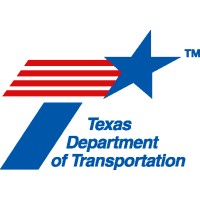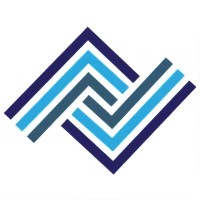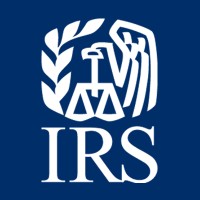
Texas Department of Transportation Company Cyber Security Posture
txdot.govThe Texas Department of Transportation is responsible for maintaining 80,000 miles of road and for supporting aviation, rail, and public transportation across the state. TxDOT and its 12,000 employees are committed to working with others to provide safe and reliable transportation solutions for Texas by maintaining a safe system, addressing congestion, connecting Texas communities, and being a Best in Class state agency. Find out more at www.txdot.gov. “Like” us on Facebook, www.facebook.com/txdot ; and follow us on Twitter, www.twitter.com/txdot .
TDT Company Details
texas-department-of-transportation
6475 employees
64368.0
922
Government Administration
txdot.gov
Scan still pending
TEX_2848172
In-progress
Between 800 and 900
This score is AI-generated and less favored by cyber insurers, who prefer the TPRM score.
 TDT Global Score
TDT Global Score.png)

Texas Department of Transportation Company Scoring based on AI Models
| Model Name | Date | Description | Current Score Difference | Score |
|---|---|---|---|---|
| AVERAGE-Industry | 03-12-2025 | This score represents the average cybersecurity rating of companies already scanned within the same industry. It provides a benchmark to compare an individual company's security posture against its industry peers. | N/A | Between 800 and 900 |
Texas Department of Transportation Company Cyber Security News & History
| Entity | Type | Severity | Impact | Seen | Url ID | Details | View |
|---|---|---|---|---|---|---|---|
| Texas Department of Transportation | Breach | 100 | 5 | 05/2022 | TEX24811822 | Link | |
Rankiteo Explanation : Attack threatening the organization's existenceDescription: Texas Department of Transportation suffered another data security incident in May 2022 after an individual posted two posts regarding the incident on a hacking-related forum. The first post included a screencap of an employee’s setup with the employee’s personal information, including SSN, ogin credentials, and the url for the state’s contractor’s payment system, and the second post included a screencap showing listings of a contractor’s projects. According to the person had acquired more than 7,000 individuals’ records which he intended to put on sale. | |||||||
| Texas Department of Transportation | Breach | 100 | 6/2025 | TEX001061025 | Link | ||
Rankiteo Explanation : Attack threatening the organization’s existenceDescription: Hackers compromised an account at the Texas Department of Transportation (TxDOT), gaining access to the Crash Records Information System (CRIS) and downloading almost 300,000 crash reports. The breached data includes names, addresses, driver’s license numbers, license plate numbers, car insurance policy numbers, details of injuries sustained during crashes, and narratives of the incidents. Texas officials decided to notify impacted individuals despite no legal requirement to do so. They also created a dedicated call line for victims. | |||||||
| The Texas Department of Transportation | Breach | 85 | 4 | 6/2025 | TEX605061125 | Link | |
Rankiteo Explanation : Attack with significant impact with customers data leaksDescription: The Texas Department of Transportation (TxDOT) suffered a cyberattack where a threat actor used compromised credentials to access its systems. Nearly 300,000 crash reports were accessed and downloaded, exposing sensitive personal information including full names, postal addresses, driver’s license numbers, license plate numbers, car insurance policy numbers, and other details like sustained injuries or crash descriptions. TxDOT immediately disabled the compromised account and notified affected individuals, warning them about potential phishing and social engineering attacks. They also mentioned implementing additional security measures to prevent future incidents. | |||||||
| Texas Department of Transportation | Ransomware | 50 | 1 | 05/2020 | TEX15167222 | Link | |
Rankiteo Explanation : Attack without any consequencesDescription: The website and web service of Texas Department of Transportation was hit by a ransomware attack. An unauthorized access to the agency’s network was responsible for the attck. TxDOT immediately took help of the federal law enforcement and isolated the incident and shut down any unauthorized access. | |||||||
Texas Department of Transportation Company Subsidiaries

The Texas Department of Transportation is responsible for maintaining 80,000 miles of road and for supporting aviation, rail, and public transportation across the state. TxDOT and its 12,000 employees are committed to working with others to provide safe and reliable transportation solutions for Texas by maintaining a safe system, addressing congestion, connecting Texas communities, and being a Best in Class state agency. Find out more at www.txdot.gov. “Like” us on Facebook, www.facebook.com/txdot ; and follow us on Twitter, www.twitter.com/txdot .
Access Data Using Our API

Get company history
.png)
TDT Cyber Security News
Account compromise leads to crash records data breach
AUSTIN – A compromise of an account has led to improper downloads of a large number of crash records, and the Texas Department of ...
The 2025 TxDOT Data Breach: A Wake Up Call for Public Sector Cybersecurity
In May 2025, the Texas Department of Transportation (TxDOT) confirmed that a compromised system account had been used to access and download ...
Texans' personal information compromised in TxDOT data breach
Spectrum News recently reported login credentials for 180 million people were found in a data breach. The City of McKinney also announced they'd ...
Hackers Stole 300,000 Crash Reports From Texas Department of Transportation
The Texas Department of Transportation has disclosed a data breach impacting the personal information included in 300,000 crash reports. By.
Data from more than 300,000 crash reports compromised in Texas DOT system
The Texas Department of Transportation (TxDOT) says a compromised online account downloaded personal data from 300,000 crash reports.
Information of Nearly 300,000 Compromised in TxDOT Breach
Personal data from more than a quarter-million Texas Department of Transportation reports was accessed improperly through a compromised account.
How the Texas DOT uses AI
Artificial intelligence is helping traffic incident response and promises much more, department leaders said.
Texas Dept. of Transportation breached, 300k crash records stolen
The Texas Department of Transportation (TxDOT) is warning that it suffered a data breach after a threat actor downloaded 300,000 crash records ...
Texas’s New Cyber Command Offers a Model for Other States
Texas's new Cyber Command Center is a direct response to the growing scale and sophistication of cyber threats targeting public infrastructure.

TDT Similar Companies

West Virginia Division of Personnel
Our mission is to provide personnel management programs to support State agencies in employing and retaining individuals of the highest ability and integrity to provide efficient and effective governmental services for the citizens of West Virginia. We help the state workforce serve the people of We

Pittwater Council
Transport for NSW is a state government agency that leads the development of a safe, efficient, integrated transport system. Pittwater Council was a local government area on the northern beaches of Sydney, New South Wales, Australia. It covered an area of 125 sq. km, including the Pittwater Water

Internal Revenue Service
Welcome to the Internal Revenue Service’s official LinkedIn account. Here, you will find the latest and greatest news and updates for taxpayers to help them understand and meet their tax responsibilities. Also, this is a place to learn about a meaningful career with the IRS. Check out the tabs above

TAHRI Mohamed Bechar University
L'Université de Béchar Est un établissement universitaire Algérien crée pour la première fois en 1986. INES puis CUB pour Centre Universitaire de Béchar et le 07/01/2009 déclaré comme université. Depuis peu, le monde est entré dans le 3ème millénaire. Un millénaire qui nous impose des défis au

HM Revenue & Customs
HM Revenue and Customs (HMRC) is the UK’s tax, payments and customs authority. We collect the money that pays for the UK’s public services and help families and individuals with targeted financial support. We help the honest majority to get their taxes and payments right, and make it hard for the d

Secretaría de Educación Pública
MISIÓN/PROPÓSITO: La SEP tiene como propósito esencial crear condiciones que permitan asegurar el acceso de todas las mexicanas y mexicanos a una educación de calidad, en el nivel y modalidad que la requieran y en el lugar donde la demanden. VISIÓN: En el año 2025, México cuenta con un sistema

Frequently Asked Questions
Explore insights on cybersecurity incidents, risk posture, and Rankiteo's assessments.
TDT CyberSecurity History Information
How many cyber incidents has TDT faced?
Total Incidents: According to Rankiteo, TDT has faced 4 incidents in the past.
What types of cybersecurity incidents have occurred at TDT?
Incident Types: The types of cybersecurity incidents that have occurred incidents .
Additional Questions
What Do We Measure?
















Every week, Rankiteo analyzes billions of signals to give organizations a sharper, faster view of emerging risks. With deeper, more actionable intelligence at their fingertips, security teams can outpace threat actors, respond instantly to Zero-Day attacks, and dramatically shrink their risk exposure window.
These are some of the factors we use to calculate the overall score:
Identify exposed access points, detect misconfigured SSL certificates, and uncover vulnerabilities across the network infrastructure.
Gain visibility into the software components used within an organization to detect vulnerabilities, manage risk, and ensure supply chain security.
Monitor and manage all IT assets and their configurations to ensure accurate, real-time visibility across the company's technology environment.
Leverage real-time insights on active threats, malware campaigns, and emerging vulnerabilities to proactively defend against evolving cyberattacks.




